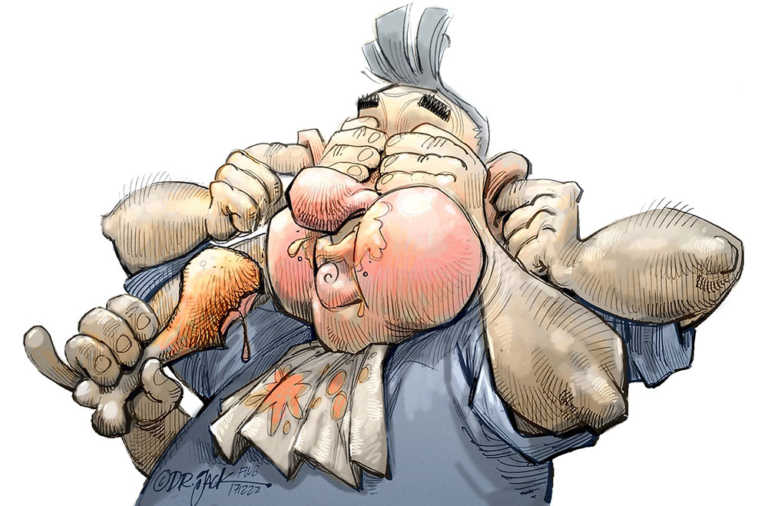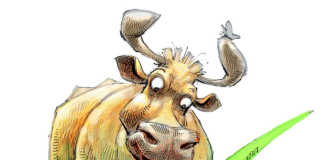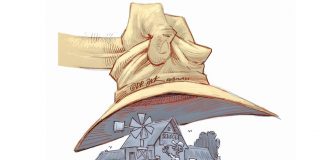
Photo: Dr Jack
Considerable academic work has focused on studying consumer preferences for animal welfare, including the sources people use for information, but one neglected question is whether consumers really want to be confronted with this information.
A study in the Netherlands found that about 27% of consumers in that country confessed to ignoring specific information about meat production, yet believed that people should be concerned about the ethics of farming animals.
READ The economics of producing aged, premium beef
Such behaviour is referred to as strategic or wilful ignorance, and is seen in many aspects of life. Knowing, for example, that motor cars or plastic are major contributors to environmental pollution doesn’t necessarily change people’s driving or buying habits.
Survey on pork production
In an Internet survey among 1 000 Oklahomans conducted in the US in June 2016, respondents were first asked whether or not they wanted information on how pigs are raised to see if they would admit feelings of wilful ignorance.
Then they were given a choice between acquiring information or watching a blank screen.
Measuring actual wilful ignorance is difficult because some of it may manifest as a passive strategy, rather than a salient choice, and so might be difficult to identify.
In the survey, between 24% and 44% of respondents admitted they did not want to know how pigs were raised (the spread might be attributable to affirmation bias, where individuals prefer to agree rather than disagree with statements).
This suggests that roughly one-third of Oklahomans prefer not to be involved in the pig welfare debate and not have to think about it when buying food.
Choosing ignorance
The respondents were then asked why they chose wilful ignorance, giving them three options with which to agree or disagree.
A large majority said they chose wilful ignorance because they trusted farmers, or had more important issues to tend to. Only about one-third said they feared that knowing how animals were raised would make them feel guilty about the food they bought.
Individuals who indicated that they did want to know how pigs were raised were asked to speculate on why some people did not want to know. Although a significant number said it was because people trusted farmers and had more important issues to consider, most said that people chose ignorance to avoid guilt.
Simply put, people were generally reluctant to say that guilt avoidance was the reason for their own wilful ignorance, but were quick to ascribe guilt avoidance to others.
This is probably due to ‘social desirability bias’, where people tend to avoid making statements that would be deemed undesirable by others. Such behaviour has been well documented and tends to exist when describing oneself but not others.
READ Animal health: what German vets can teach us
Another way to measure wilful ignorance was to give respondents the choice of remaining ignorant about how gestating sows were housed.
In the survey, consumers were given the choice of seeing a picture of how gestating sows were housed on a typical farm, or a blank page. By choosing the blank page, the consumer deliberately decided to remain ignorant about the housing of gestating sows. Approximately one-third of the respondents chose the blank page.
The question assumes that a picture is more appealing than a blank page due to the ubiquity of images in human culture, from cave drawings to corporate logos.
According to this assumption, a person would choose a blank page only if the picture is expected to generate negative feelings. So one-third of individuals probably expected the picture to show a pig being treated poorly and decided they did not want that exposure.
Complex subject
Surveys that ask people whether they care about the well-being of farm animals find that most answer in the affirmative. Likewise, when asked to vote on measures to ban livestock cages, voters typically pass the ban.
Yet, sales of free-range eggs remain low compared with those of cage-produced eggs, and products sold under labels such as ‘Animal Welfare Approved’ are absent from most Oklahoma grocery stores.
This discrepancy may be explained by the concept of wilful ignorance, but only partially, as this is a complex subject. The question of animal welfare is harder to avoid when one is asked about it directly in a survey, but easier to dismiss in the store.
When given the choice, at least one-third of Oklahomans would rather not have to confront the animal welfare issue. This is because they trust the farmer and have other issues to worry about, but also because they are employing a strategy to avoid guilt.
Animal welfare implications
Animal welfare is determined by farm management practices, and these, in turn, are influenced by consumer attitudes, as expressed in grocery stores, the media, and society at large.
How does the presence of wilful ignorance affect animal welfare? According to the survey, (a) some consumers avoid the issue of animal welfare in order to prevent feelings of guilt,
(b) many consumers trust farmers and are prepared to allow their discretion in
how they raise livestock, and (c) the less responsibility that consumers accept for their food choices, the lower the standards of animal welfare.
The views expressed in our weekly opinion piece do not necessarily reflect those of Farmer’s Weekly.
For more information, email Prof Bailey Norwood at [email protected].











